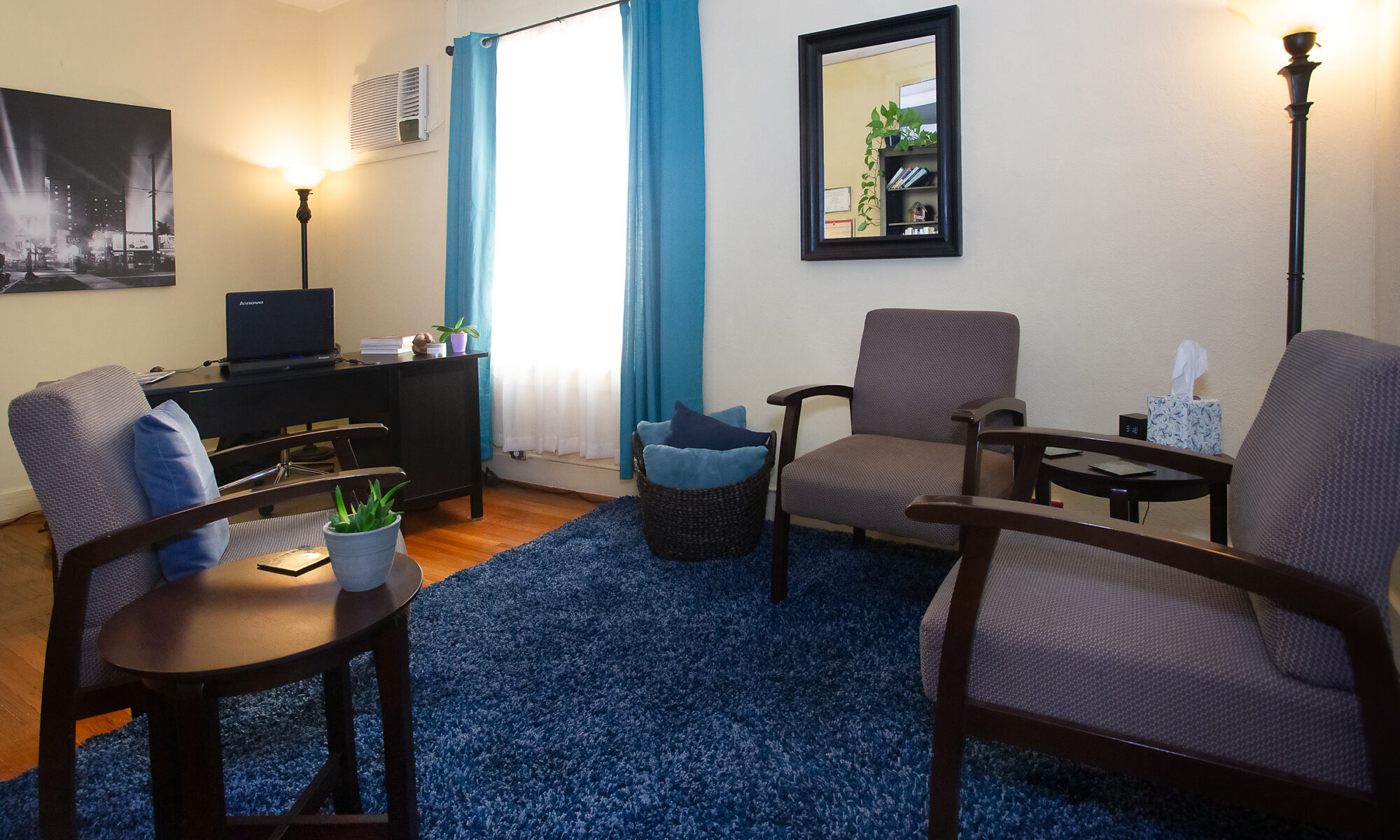
Working with couples, it is not uncommon to hear similar complaints from different clients. This is not unusual, because the unifying issue for ALL couples who come to me is that they are disconnected. This does not mean that they don’t love one another, instead it means that they have run into any number of differences that are making things, including loving one another, difficult and causing them to turn away from each other.
What is disconnection? In simplest terms, it refers to when you no longer see your partner as your teammate–instead you see them as a threat, an enemy, someone you can’t trust, someone who is not on your side. This happens to everyone at times, not just those who have negative experiences in their past. Our brains are wired to push back when presented with something we don’t understand, that seems too unfamiliar, or that suggests a betrayal. Our goal is to protect ourselves. We do this by disconnecting: pushing the other away or shutting them out of our emotional life.
The problem with this is that it doesn’t work! At least not if you want a relationship that can handle the inevitable difficult conversations as well as the individual growth and changes each partner experiences. So what do I tell these couples who are wanting to reconnect but don’t trust one another? I tell them to start acting like a therapist with one another, though I may not use those exact words. Let’s look at what I mean…
THE DIFFERENCE BETWEEN BAD AND GOOD THERAPISTS: As students, we are told in graduate school that clients don’t benefit from one therapeutic theory/approach more than another. What actually creates change in the room is the relationship between the client and the therapist. This relationship is professional, but it is also a kind of friendship with boundaries. And the important elements of this relationship include empathy, curiosity, and caring from the therapist toward the client.
You might say that these elements make good therapy. What then makes a good therapist? Is it simply the application of empathy, curiosity, and caring? Well, yes, but it has to be genuine.
I will freely admit that there are days when I wish I could go on a bike ride rather than see my next client, but when that client shows up, it is my responsibility to him/her/them to show up authentically–to do so otherwise would betray the trust they have in me. Fortunately, the work always pulls me in, regardless of what I was feeling before the session, because “caring” is a form of mindfulness: bringing oneself into the moment. When I am truly in the moment, caring, there is no place I would rather be, even if it is a good day for a bike ride!
The difference between a good therapist and a bad therapist is that a bad therapist will fake it in the moment. Showing up for someone does not always mean that you want to be there, it simply means that you truly show up, and people can tell when this is happening. We do this for others because, hopefully, we know that others will do it for us. And I remind you that showing up for someone, being needed, is what lends meaning to our lives.
THE BENEFIT OF BEING LIKE A “GOOD THERAPIST” IN YOUR RELATIONSHIP: When a therapist is able to shift into the moment and offer genuine caring, both the client and the therapist benefit! When two people are in the moment with each other, that connection is where healing can occur. The good news is that this healing connection is not only available in the therapist office–you can get it in your personal relationships as well. But sometimes partners need to learn how to do this with each other.
When I talk to couples about the benefits of learning how to truly listen to one another, I can see the doubt in their eyes, because most would rather problem-solve than listen. I then tell them that listening well, when your partner is in pain, is much easier than trying to solve the problem, and it actually works! Easier for the listener, more helpful for the talker. I have nothing against problem-solving, but couples rarely come to me because they are struggling with that–mostly they don’t know what to do if problem-solving is not called for.
Listening to someone we care about when they are in pain or upset with us can be difficult, but the best way out of that difficulty is to turn on your caring and your curiosity. This approach will not only lower the upset in the talker, but will also lessen the feeling you have of being powerless, criticized or attacked. It works because the highest form of caring is interest, not fixing.
This can require some re-wiring of our brains, as many of us are conditioned to fix when we can. We all grow up hearing the phrase: “Don’t just sit there, DO something!”, but in relationships the opposite (Don’t just do something, sit there!) is what is most helpful when feelings are being discussed. Pain is eased when we are supported, listened to, empathized with, and not judged. All of this can be accomplished by simply sitting with someone, perhaps asking what they need from you, and then doing exactly that.
The benefit is that you end up strengthening connection, trust, safety, caring, and understanding.
APPLYING THIS TO YOUR RELATIONSHIP: So why don’t couples do this with one another? The simplest answer is because it is not natural for us to respond this way when we feel threatened or are upset–this is the reason we rely on our therapists! Therapists have an easier time responding with caring and curiosity because of their training and also the professional boundaries that help the therapist to lean into the caring without taking any behavior by the client personally.
(Additionally couples don’t do this because they have not built a safe and secure foundation of trust through consistent small acts of caring, but that is a topic for another essay.)
The reason for learning how to act like a good therapist with your partner is two-fold: it is good for the relationship, and it save you from having to spend money anytime on therapy anytime you have a conflict that you cannot resolve easily.
Why are partners hesitant to accept this approach from their partners? Well, the reason I notice most often is because so many people don’t trust caring. They grew up not being cared about, or at least their emotional world was not cared about, or worse yet, they were betrayed by the one responsible for caring about them. This type of experience can wire the brain to be suspicious when someone is curious about your feelings–but with a therapist you might feel like you are on equal footing because you are paying for the service (you have the control).
In a relationship, you might not feel in control when your partner starts to inquire about what’s going on with you, IF they inquire at all! And often the inquiry can feel disingenuous or condescending to us, even when genuine, and we suspect that there are ulterior motives for the questions. This is the time to take a deep breath with a slow exhale, and see if you can access your feelings and express them.
Answering questions about out inner life requires that we take the risk of being vulnerable and trusting in front of the person doing the asking, and that can be hard if we are upset with them in the moment. But it CAN be done! Like any skill that is not natural (a new language, playing a musical instrument, baking sourdough bread), it takes practice, patience, and humility, three qualities that are in short supply these days. But just because there is a disease in society does not mean that you have to bring it into your home.
The next time you feel like your partner is “being a therapist” with you, pause for a moment and ask yourself if they may be trying hard to care about you by showing interest. Help them out–if they are pursuing a dead end let them know, and tell them what road you are on, even if you are “lost”. These are the conversations that bring couples closer, build trust and safety, and heal past wounds, and you don’t need to be in a therapist’s office in order to have them!
